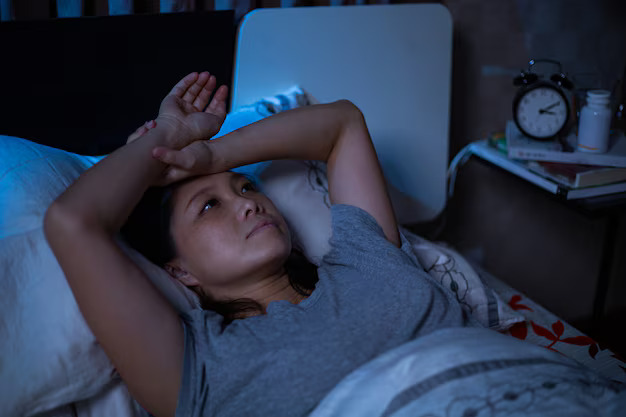Sleep and mental health are deeply intertwined, and in recent years, growing evidence suggests that better sleep can significantly reduce anxiety attacks. While anxiety disorders affect millions worldwide, many people overlook how improving sleep hygiene and achieving quality rest can support emotional resilience and reduce the frequency and intensity of anxiety episodes. In this article, we’ll explore how sleep and anxiety are connected, the science behind their relationship, and practical steps to improve sleep and reduce anxiety attacks naturally.
Thank you for reading this post, don't forget to subscribe!The Connection Between Sleep and Anxiety
Numerous studies have shown a strong link between poor sleep and anxiety. When you don’t get enough restorative sleep, your brain struggles to regulate emotions, leading to increased feelings of stress, worry, and panic. In fact, sleep deprivation can trigger anxiety attacks in individuals who are predisposed to anxiety disorders.
Sleep affects key areas of the brain, particularly the amygdala and prefrontal cortex. The amygdala governs emotional responses such as fear and anxiety, while the prefrontal cortex helps regulate these emotions. When you’re well-rested, the prefrontal cortex keeps the amygdala in check. However, lack of sleep reduces this regulation, leading to heightened emotional reactivity and making you more vulnerable to anxiety attacks.
Can Better Sleep Reduce Anxiety Attacks?
Yes, improving your sleep quality can play a vital role in reducing anxiety attacks. Here’s how:
1. Improved Emotional Regulation
A full night of restful sleep enhances the brain’s ability to manage stress and control emotional reactions. When you sleep well, your nervous system is less reactive, making you less prone to panic or fear-based responses.
2. Balanced Cortisol Levels
Chronic sleep deprivation increases cortisol, the body’s primary stress hormone. Elevated cortisol levels can lead to heightened anxiety and frequent anxiety attacks. Better sleep helps maintain healthy cortisol rhythms, reducing the risk of heightened stress responses.
3. Reduced Rumination
People with anxiety often experience racing thoughts and excessive worrying. Sleep deprivation can intensify this mental chatter. When sleep improves, ruminative thinking tends to decrease, reducing anxiety symptoms and the frequency of attacks.
4. Increased Resilience to Stress
Sleep strengthens mental resilience. When you’re rested, you’re better equipped to handle daily stressors without becoming overwhelmed, which is crucial for those dealing with anxiety disorders.
Research Supporting the Link Between Sleep and Anxiety
A 2019 study published in Nature Human Behavior found that even one night of poor sleep increases anxiety levels by up to 30%. Conversely, participants who achieved deep, non-REM sleep showed marked reductions in anxiety the next day.
Another study by the University of California, Berkeley, revealed that sleep disruption impairs the brain’s ability to regulate emotions, while deep sleep acts as a natural anxiolytic (anxiety-reducing agent).
These findings confirm that prioritizing sleep isn’t just good for physical health—it’s essential for mental well-being too.
Symptoms of Sleep-Related Anxiety
If you’re experiencing any of the following, your anxiety may be linked to poor sleep:
- Difficulty falling or staying asleep
- Waking up feeling unrested or anxious
- Panic attacks at night
- Racing thoughts before bed
- Feeling fatigued yet mentally wired
- Heightened anxiety in the morning
Recognizing these signs early can help you take the necessary steps toward improving your sleep and anxiety management.
Tips for Improving Sleep and Reducing Anxiety Attacks
If you’re struggling with anxiety attacks, incorporating these sleep-improvement strategies into your routine may help:
1. Establish a Consistent Sleep Schedule
Go to bed and wake up at the same time each day—even on weekends. This reinforces your body’s circadian rhythm, helping regulate your sleep and anxiety levels.
2. Create a Calming Bedtime Routine
Incorporate relaxing activities before bed such as reading, gentle stretching, or breathing exercises. A consistent wind-down routine signals to your body that it’s time to sleep.
3. Limit Caffeine and Alcohol
Both substances can interfere with sleep and increase anxiety. Aim to avoid caffeine after 2 PM and limit alcohol consumption, especially in the evenings.
4. Turn Off Screens Before Bed
Blue light from phones and computers can disrupt melatonin production, making it harder to fall asleep. Power down at least an hour before bed for better sleep quality.
5. Use Mindfulness or Meditation
Practices like guided meditation or progressive muscle relaxation can calm the mind, making it easier to fall asleep and reducing nighttime anxiety.
6. Consider Cognitive Behavioral Therapy for Insomnia (CBT-I)
CBT-I is a proven approach that addresses both sleep issues and anxiety by changing unhelpful thought patterns and behaviors.
7. Seek Professional Help if Needed
If anxiety attacks persist, talk to a mental health professional or sleep specialist. Therapy, medication, or a combination of treatments can help break the cycle of poor sleep and anxiety.
The Role of Sleep Hygiene in Mental Health
Practicing good sleep hygiene—the habits and environment that promote restful sleep—is critical for reducing anxiety attacks. These habits include:
- Keeping the bedroom cool, dark, and quiet
- Avoiding heavy meals late at night
- Getting regular physical activity during the day
- Limiting naps to 20–30 minutes earlier in the day
When you prioritize sleep hygiene, you’re actively supporting both your mental health and anxiety reduction goals.
Also read: Sleep Troubles Explore Effective Remedies For Refreshing Sleep
Better Sleep, Fewer Anxiety Attacks
The science is clear: better sleep can reduce anxiety attacks and improve overall emotional well-being. By understanding the intricate connection between sleep and anxiety, you can make meaningful lifestyle changes that support mental health and lead to more peaceful, restorative nights.
While quality sleep isn’t a cure-all, it’s a powerful tool in managing anxiety and reducing the likelihood of panic attacks. Don’t underestimate the importance of consistent, high-quality rest—your mind and body depend on it.



